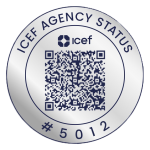
FREQUENTLY ASKED QUESTIONS

FAQ
There is no one-size-fits-all answer to this question, as it depends on your individual interests, academic goals, and budget. Some popular destinations for studying abroad include the United Kingdom, Canada, Australia, Spain, Ireland, Italy, USA and Japan. It’s important to do your research and consider factors such as language barriers, cultural differences, and visa requirements before making a decision. The consultants at MB Edu-Consults can also provide guidance and resources to help you choose the right program and destination for you.
The cost of studying abroad varies depending on the country, program, and length of stay. It’s important to research and compare different options to find the best fit for your budget. Some programs may offer scholarships or financial aid to help offset costs. Additionally, it’s important to consider additional expenses such as travel, housing, and living expenses. It’s always a good idea to create a budget and plan ahead to ensure a successful and affordable study abroad experience. We invite you to consult with our counsellors for more information.
When it comes to applying for a study abroad program, it’s important to start planning early. Ideally, you should start researching and considering your options at least a year in advance. This will give you enough time to research different programs, gather necessary documents, and meet application deadlines. Keep in mind that some programs may have earlier deadlines than others, so it’s important to stay organized and on top of the application process. Don’t wait until the last minute to start planning, as this can lead to added stress and missed opportunities. Start early and give yourself plenty of time to prepare for this exciting and life-changing experience!
The length of a study abroad program can vary depending on the specific program and the requirements of your home institution. Some programs may be as short as a few weeks, while others can last an entire academic year or longer. It’s important to research different programs and their time commitments to find one that fits your academic and personal goals. Additionally, be sure to plan ahead and allow enough time for the application process and any necessary preparations before departing for your study abroad experience.
If you’re considering pursuing education overseas, there are a few prerequisites you should keep in mind. First and foremost, you’ll need to have a strong academic record and meet the admission requirements of the institution you’re interested in attending. Additionally, you’ll need to have a valid passport and any necessary visas or permits to study in the country of your choice. It’s also important to have a good understanding of the language and culture of the country you’ll be studying in, as this can help you adjust more easily to your new surroundings. Finally, you’ll need to have the financial resources to cover the cost of tuition, living expenses, and any other associated costs.
While the required documents for an application may vary by country, there is a common list of documents that are typically required across most countries. These documents include:
1. Data page of your International Passport
2. A statement of purpose/ Personal statement
3. CV/Résumé
4. Academic references/ letters of recommendation
5. Degree Certificate and Transcripts
6. High School Certificate and transcripts
7. Proof of English-language proficiency (e.g., TOEFL/IELTS/PTE, Duolingo, if required by your study destination country)
8.Admissions test results (e.g. GMAT/GRE results, for graduate programs)
Yes, international students can work while studying in many countries, but the rules and regulations regarding working while studying can vary depending on the country and the type of visa you hold.
In some countries, international students are allowed to work a certain number of hours per week during the academic term and full-time during breaks, while in others, there may be restrictions on the type of work you can do or the number of hours you can work.
It is important to check the regulations for working as an international student in the country where you are studying, as well as any restrictions that may apply to your visa. When we discuss your prospects, we will provide you with information and advice on working while studying.
